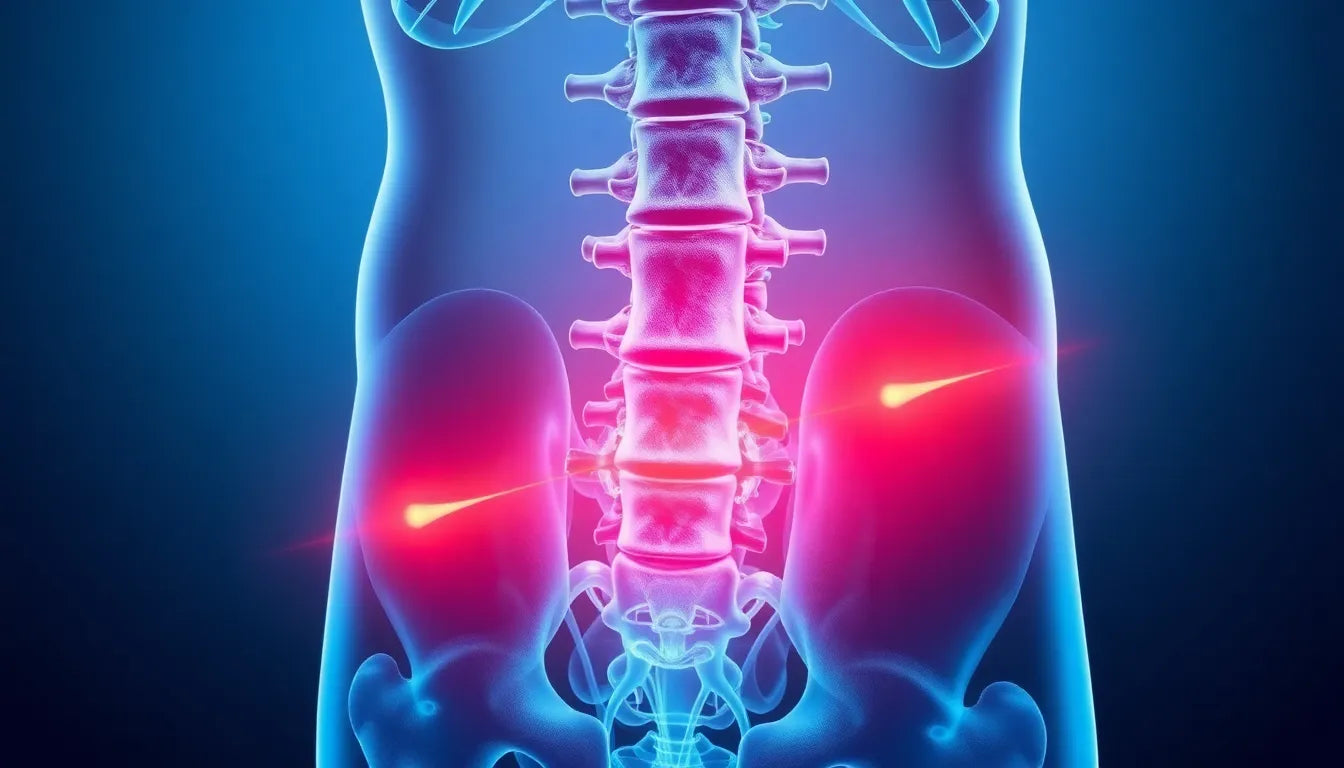Intervertebral Disc Disease (IVDD) is a common yet serious condition that affects many French Bulldogs, primarily due to their distinct anatomical features. This breed, known for its charming personality and unique appearance, is unfortunately predisposed to herniated discs because of its compact spinal structure and brachycephalic traits. Understanding the risks associated with IVDD is crucial for any French Bulldog owner, as early detection and intervention can significantly improve your pet's quality of life and prevent severe complications.
importance of awareness
Recognizing the early symptoms of a herniated disc in French Bulldogs is vital. These dogs often exhibit signs such as an arched back, lowered head, stiff neck or limbs, and shivering. They may also show hesitant movement, vocalize when touched, or display incoordination or weakness. In severe cases, paralysis or loss of sensation can occur, making prompt veterinary attention essential. Being aware of these symptoms allows for timely intervention, which can mean the difference between a manageable condition and one that severely impacts your dog’s life.
brief overview of the blog
This blog post will delve into the critical aspects of managing IVDD in French Bulldogs. We will start by identifying the signs and symptoms that indicate a potential herniated disc. Following this, we will explore the diagnostic tools used by veterinarians to confirm this condition, such as X-rays and MRI scans. Understanding treatment options is equally important, so we will discuss both conservative management techniques and surgical interventions. Additionally, we will provide guidance on home care and long-term management strategies to ensure your French Bulldog leads a comfortable and fulfilling life despite the challenges of IVDD.
signs and symptoms of a herniated disc in french bulldogs
French Bulldogs, with their distinctive brachycephalic features and compact spinal structure, are particularly susceptible to Intervertebral Disc Disease (IVDD). This condition often manifests through a variety of symptoms that can range from mild discomfort to severe neurological impairment. Recognizing these signs early can be crucial in managing the disease effectively and ensuring your French Bulldog maintains a good quality of life.
Typical symptoms of a herniated disc include an arched back and a lowered head, indicating discomfort or pain. You might notice your dog exhibiting a stiff neck or limbs, which can signal muscle tension or nerve irritation. Shivering is another common symptom, often a response to pain or stress. Additionally, your French Bulldog may show hesitant movement or vocalize when touched, both signs of discomfort.
In more severe cases, you might observe incoordination or weakness, particularly in the hind limbs, which can progress to paralysis or loss of sensation in extreme situations. This underscores the importance of prompt veterinary attention if any of these symptoms arise, as early intervention can prevent the condition from worsening.
diagnosing herniated discs in french bulldogs
Early detection of a herniated disc is pivotal for effective treatment and management. Regular veterinary check-ups play a critical role in identifying potential issues before they escalate. During these visits, your veterinarian may perform a physical examination and discuss any symptoms you've observed at home.
To confirm a diagnosis of disc herniation, diagnostic imaging tools like X-rays and MRI scans are often employed. X-rays can help rule out other conditions and provide a general view of the spine, while MRI scans offer a more detailed image, allowing veterinarians to pinpoint the exact location and severity of the herniation. This information is vital for determining the most appropriate treatment plan for your French Bulldog.
treatment options for herniated discs
Treatment for a herniated disc in French Bulldogs depends largely on the severity of the condition. For mild to moderate cases, conservative management is often recommended. This approach includes strict rest to prevent further injury, along with pain management through medications like painkillers, anti-inflammatories, and muscle relaxers. Physical therapy and rehabilitation exercises are also integral to conservative treatment, as they help strengthen the muscles around the affected area and improve mobility.
In cases where the dog experiences severe pain or is unable to walk, surgical intervention may be necessary. Surgery aims to relieve spinal cord compression and prevent further damage. The recovery period post-surgery typically spans 6 to 8 weeks, during which activity must be significantly restricted to ensure proper healing.
comparison of treatment options
| Treatment Type | Description | Indications |
|---|---|---|
| Conservative | Rest, pain relief, physical therapy | Mild to moderate cases |
| Surgical | Relieves spinal cord compression | Severe pain or inability to walk |
Choosing the right treatment path for your French Bulldog requires careful consideration of the dog's specific condition and quality of life. Consulting with a veterinary neurologist can provide valuable insights and guidance tailored to your pet's needs. Whether opting for conservative management or surgical intervention, the goal is to alleviate pain and restore function, ensuring your French Bulldog can enjoy a happy and active life.
Home care and management for French Bulldogs with herniated discs
Providing a supportive environment at home is crucial for French Bulldogs recovering from a herniated disc. This involves several key aspects that help enhance comfort and prevent further injury. A balanced diet is essential to maintain an ideal weight, reducing pressure on the spine. Preventing falls or jumps from furniture is also important, as these actions can exacerbate spinal issues. Using ramps or steps can help your dog access higher areas safely.
Following your veterinarian's instructions regarding activity restrictions is vital. This may include limiting playtime and ensuring your dog gets adequate rest. Additionally, supportive devices like orthopedic belts can aid in maintaining proper spinal alignment and reducing stress on the intervertebral discs. These measures collectively contribute to a safer and more comfortable living environment for your pet.
Long-term management strategies
Long-term management of Intervertebral Disc Disease (IVDD) in French Bulldogs involves continuous care and lifestyle adjustments. Regular veterinary check-ups are essential to monitor your dog's condition and make necessary adjustments to their care plan. These visits can help identify any changes in your dog's health and allow for timely interventions.
Physical therapy sessions can be beneficial in maintaining muscle strength and flexibility, reducing the risk of future disc issues. It is also important to avoid strenuous activities that could strain your dog's back. By incorporating these practices into your daily routine, you can help your French Bulldog lead a healthier and more active life despite the challenges of IVDD.
Frequently Asked Questions
What causes herniated discs in French Bulldogs?
Herniated discs in French Bulldogs are primarily caused by genetic predispositions and their unique physical characteristics. Their compact spinal structure and brachycephalic features make them more susceptible to Intervertebral Disc Disease (IVDD), which can lead to disc degeneration and herniation.
How can I tell if my French Bulldog has a herniated disc?
Signs of a herniated disc in French Bulldogs include an arched back, lowered head, stiff neck or limbs, shivering, hesitant movement, and vocalizing when touched. In severe cases, you may notice incoordination, weakness, or even paralysis. If you observe these symptoms, consult your veterinarian promptly.
Is surgery always necessary for a herniated disc in dogs?
Surgery is not always necessary for a herniated disc. It is typically reserved for severe cases where the dog is in significant pain or unable to walk. Mild to moderate cases can often be managed conservatively with rest, pain relief, and physical therapy.
How can I help my French Bulldog recover from a herniated disc?
To aid recovery, provide a supportive environment with a balanced diet and prevent any jumping or falls. Follow your veterinarian's instructions on activity restrictions and consider using supportive devices like orthopedic belts. Regular physical therapy can also help in strengthening the muscles around the affected area.
Are there preventive measures for IVDD in French Bulldogs?
Preventive measures for IVDD include maintaining a healthy weight through a balanced diet, avoiding activities that strain the spine, and ensuring regular veterinary check-ups. These practices can help reduce the risk of disc issues and support your dog's overall spinal health.
Sources
- Under the Weather Pet. "French Bulldog IVDD: Recognizing Signs and Managing the Condition."
- PDSA. "Intervertebral Disc Disease (IVDD) in Dogs."
- Southeast Veterinary Neurology. "IVDD in Dogs: Symptoms, Diagnosis, and Treatment."
- French Bulldog Breed. "French Bulldog Hip Aid Orthopedic Belt and IVDD Management."


















